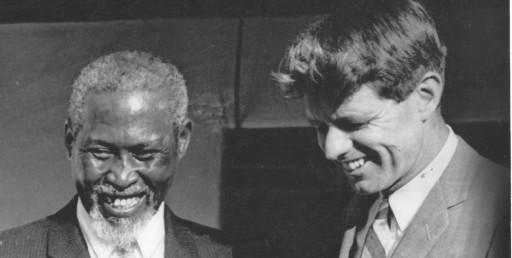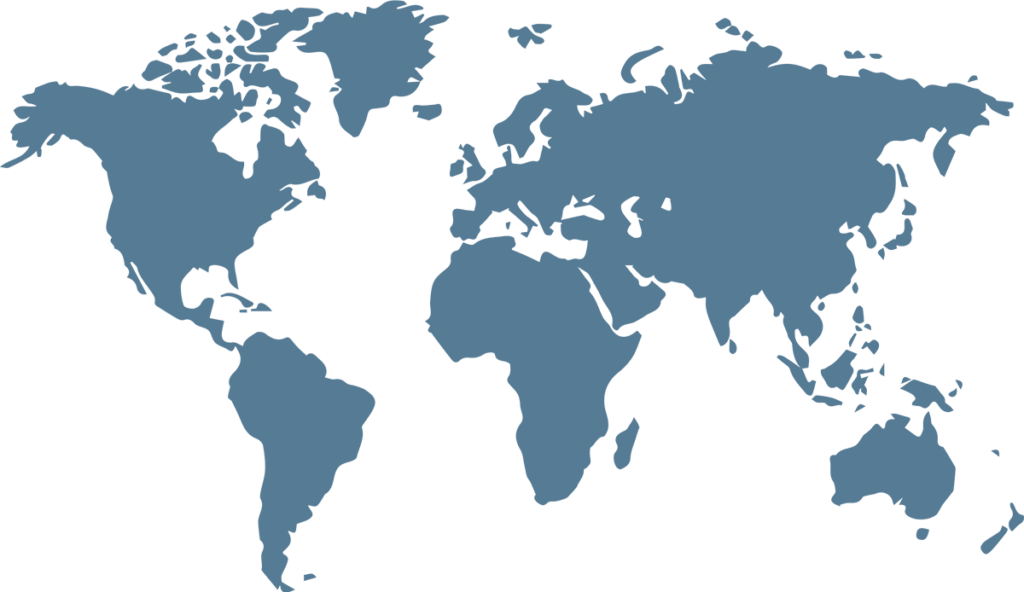This week marks the 50th anniversary of the assassination of Robert F. Kennedy, and today marks the 52nd anniversary of Kennedy’s meeting with Chief Albert Luthuli.
His daughter, Albertina Luthuli, then a medical student remembers the meeting vividly, and in this interview, recounts the events of the day, and their future significance, “Kennedy was as great an orator as any, and when he spoke, his words made us feel better and left us feeling that one day we would overcome in the struggle against the apartheid government. In the midst of the darkness that apartheid cast over us, he was a shining light and he injected a spirit of resilience into us.”
Dr Albertina Luthuli vividly remembers the events of 1966. Her mother had phoned her at medical school in Durban, where she was studying and summoned her to hurry home to Groutville.
Her father, Chief Albert Luthuli, the banned leader of the ANC, was to meet New York Senator Robert Kennedy – at the time one of the most influential figures in American politics.
Given the difficult circumstances they were subjected to under the apartheid government, the people of Groutville were not a spirited lot. But there was great excitement in the community when the helicopter carrying the American senator was sighted and Kennedy and his wife, Ethel, landed at a nearby soccer field.
Luthuli, the eldest daughter of the ANC stalwart, recalls it was a bright Wednesday, around midday. “It was as if the weather was showing off, there was a stillness in the air, neither too hot, nor too cold and despite it being winter, it was like the perfect summer’s day.”
She recalls the two political heavyweights walking away from a large crowd of well-wishers, pressmen and police for a quiet word together.
The two spoke about the problems facing the US and the future of black South Africans during the meeting.
Luthuli had been living under house arrest, banished to the relative obscurity of the then Natal North Coast. In accordance with the ban imposed on him by the apartheid government, he was not allowed to be quoted nor photographed by the media, so there is no detailed account of what exactly was said.
But it is clear the meeting left a strong impression on the American, who later referred to Luthuli as one of the most impressive men he had met on his travels around the world. He hailed the ANC leader’s compassion, understanding and tolerance as hallmarks of his greatness.
The Groutville meeting was perhaps the most significant episode of the senator’s visit to South Africa, in a visit crowded with meetings and speeches of considerable importance.
He demonstrated an apparent openness to meeting the apartheid powerbrokers, to gauge their insistence on wielding such an oppressive regime over the black populatio. But a recurring theme of his visit, was Kennedy’s desire to meet black people – in Soweto as well as the momentous meeting with Luthuli – to express his solidarity with their plight.
Luthuli, told the Daily News, the Democratic senator’s expedition had been made with his ascendency to the American presidency in mind two years later, a position from which he had hoped to make compelling interventions in South Africa.
“The most striking thing about Senator Kennedy’s visit to South Africa, at the height of the struggle against apartheid, is that he wanted to gather all the facts about the situation in the country by engaging with both whites and blacks,” Luthuli recalled.
She fondly remembered the impact Kennedy’s visit and his words had on the psyche of black South Africans: “Kennedy was as great an orator as any, and when he spoke, his words made us feel better and left us feeling that one day we would overcome in the struggle against the apartheid government. In the midst of the darkness that apartheid cast over us, he was a shining light and he injected a spirit of resilience into us.”
In the 1960s African-Americans in the US were involved in the Civil Rights Movement as they sought an end to racial segregation and discrimination in their own country, so they could relate to what was going on in South Africa.
The Groutville visit came towards the end of his six-day visit. On June 6, Kennedy had given his acclaimed “Ripple of Hope”; speech at the Stellenbosch University, then the bastion of Afrikaner intellectual power.
Challenging his audience of mainly students, Kennedy said: “If the blacks are not ‘inferior’ to the whites, why don’t they take part in your elections? Why don’t you allow them to worship in your churches? What the hell would you do if you found out that God was black?”
He called out the apartheid government on its unjust laws and inspired those fighting to bring an end to the injustice.
“Each time a man stands up for an ideal, or acts to improve the lot of others, or strikes out against injustice he sends forth a tiny ripple of hope, and crossing each other from a million different centres of energy and daring, those ripples build a current which can sweep down the mightiest walls of oppression and resistance.”
The students gave him a standing ovation. He also addressed students at the Universities of Cape Town and the Witwatersrand, and it is reported 20 000 students at the then University of Natal came to hear him speak.
During his visit to Soweto, thousands of people lined the streets and he greeted and talked to them. He told the crowds of his meeting with Luthuli, the first bit of news that some of them had heard of their leader in five years.
Brian Xaba, the director of the Luthuli Museum Council, said the senator’s visit to South Africa, and in particular his meeting with Luthuli, showed a sense of solidarity with people in the struggle against apartheid.
“He (Kennedy) spoke with everyone, from whites and blacks to religious leaders… showing he was willing to engage all parties,” Xaba said
Reflecting on his trip Kennedy, said: “Obviously it is tragic when, because of the colour of their skin, people are treated unequally. For this reason, my trip to South Africa was unhappy.”
But the visit, by a prominent American leader, at a time when black South Africa was ruled mercilessly by the apartheid government, inspired the international community to mobilise against the injustice.
“Black people are not acutely aware that the struggle for freedom, that leaders like Robert Kennedy also contributed to fifty years ago, did not end with the voting in of the democratic government in 1994, because there is still a struggle for economic emancipation that must be overcome,” Luthuli said.
…
A race cut short
Perhaps the words most synonymous with Robert F Kennedy are these: “Few will have the greatness to bend history itself, but each of us can work to change a small portion of events, and in the total of all those acts will be written the history of this generation.”
That greatness was his destiny, but like his brother, the president, John F Kennedy, before him in 1963, it was snuffed out by the squeeze of a trigger five years later.
The younger Kennedy, already having served as attorney-general of New York under his brother’s presidency, was well on his way to ascending to the highest office in world politics when he met his untimely end.
He was addressing supporters at The Ambassador Hotel in Los Angeles, California, on the night of June 5, 1968, when tragedy struck. Sirhan Bishara Sirhan, a 24-year-old Palestinian, assassinated Kennedy..
The 1960s was a decade fraught with the assassinations of prominent US leaders, black and white, who were sympathetic to the cause of the black freedom fighters, from lesser known, but no less important, American activists such as Fred Hampton, to mainstays of the Civil Rights Movement, Malcolm X and Dr Martin Luther King.
Dr Albertina Luthuli said she was unsurprised by the assassinations of these black leaders, and the Kennedy brothers, because they were being eliminated by right-wing extremists hell-bent on quashing any attempt at equality between blacks and whites.
Even her father’s death, described as a train accident by the apartheid government had the makings of an assassination, she said. www.iol.co.za

